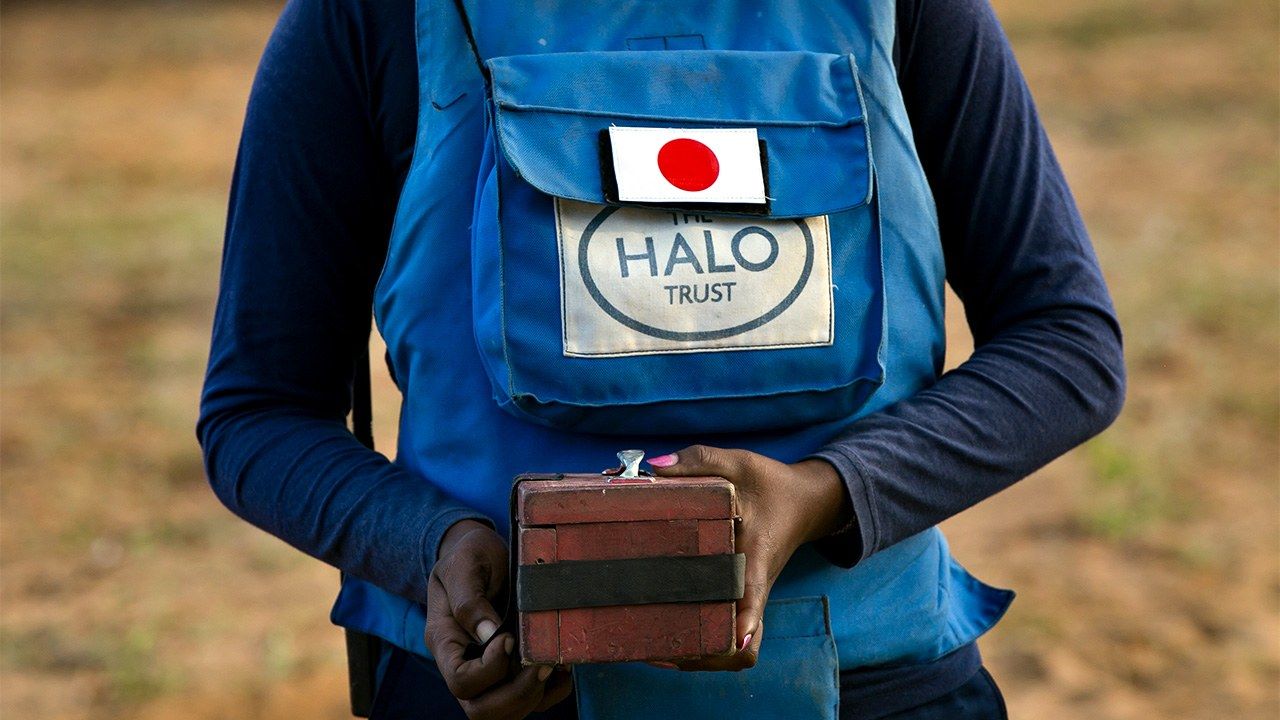
Japan’s Commitment to a Landmine-Free World
Society World- English
- 日本語
- 简体字
- 繁體字
- Français
- Español
- العربية
- Русский
A Bitter Legacy
Funding from Japan and other nations has removed millions of antipersonnel landmines from war-torn areas around the globe. However, countless more remain buried, indiscriminately killing and maiming thousands of innocent victims each year, many of them children.
Giles Duley, a British photographer who has spent the better part of two decades documenting the long-term consequences of conflict, has his own term for the weapons: “Landmines are what I call the legacy of war.”
Himself a victim of an improvised explosive device, Duley is a compelling antimine advocate. In 2011 he lost both legs and his left arm to an IED while on assignment in Afghanistan. His long struggle to heal and rebuild his life and the enduring pain of his wounds give him an intimate understanding of what hundreds of thousands of other people around the world go through daily. He continues to travel to areas scarred by war—places like Angola, Colombia, and Syria—to photograph victims and tell their stories for his website, Legacy of War, a stark portrayal of the lasting impact of antipersonnel landmines.
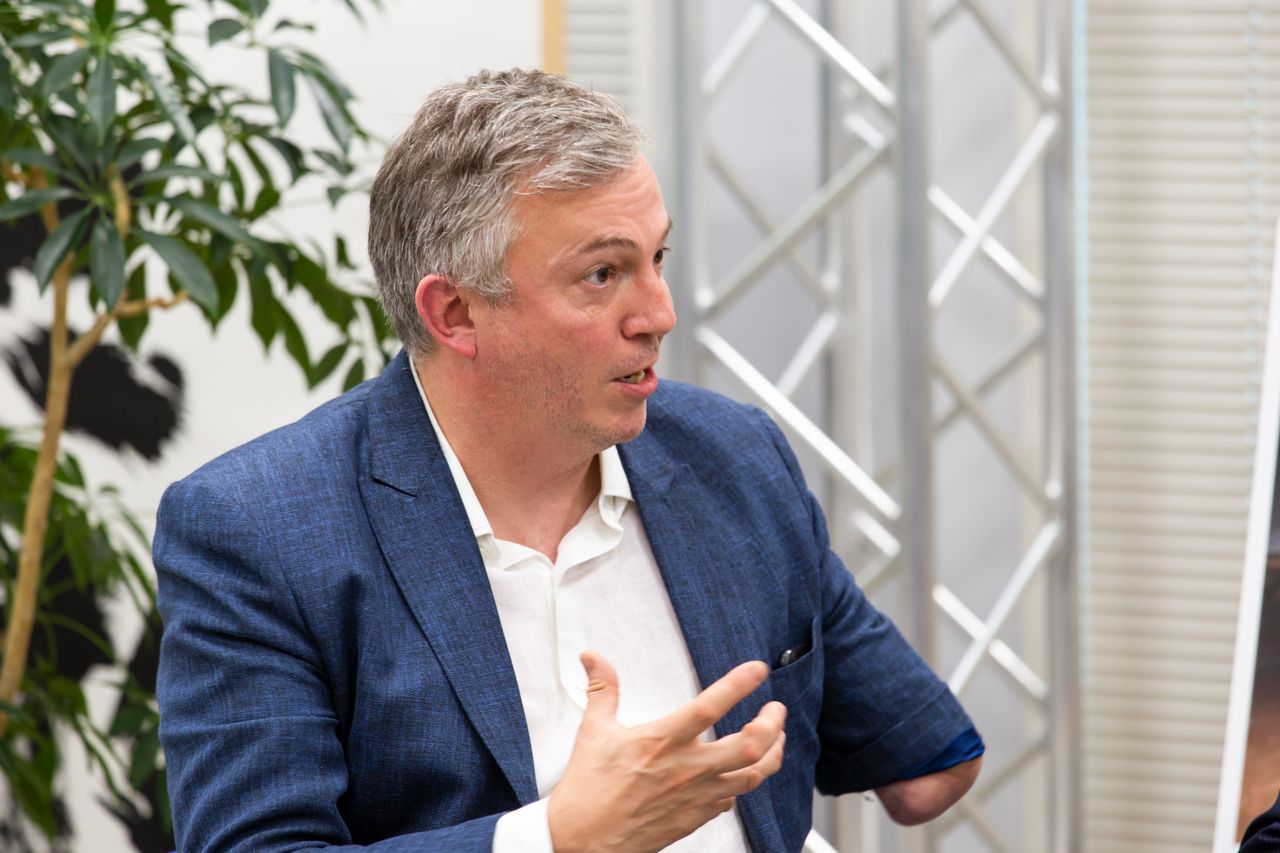
Giles Duley shares his story of being injured by an IED and his ongoing work documenting people wounded by landmines.
Duley recently brought his message to Tokyo for a Landmine Free 2025, a June 11 event hosted by the HALO Trust, the British landmine charity Hazardous Areas Life-Support Organization, and the Japanese NGO Association for Aid and Relief, Japan. Ahead of that event, attended by national politicians and foreign diplomats, Nippon.com hosted the organizers at its Tokyo studio to hear their views on the journey toward landmine eradication.
Raising Awareness of Landmines
“When we talk about mines, IEDs, or UXOs [unexploded ordinance] we are talking about individuals whose lives are destroyed,” exclaims Duley. In his travels he has collected a heart-wrenching litany of stories—a Laotian woman whose daughter and brother were killed by an unexploded ordinance decades after peace was declared; a Cambodian man who, missing both legs, is jobless and sleeps in a dog basket under a plastic tarp. “It’s not just about the pain of being injured, but that a person can never work again and that a family must go without. It affects the whole community.”
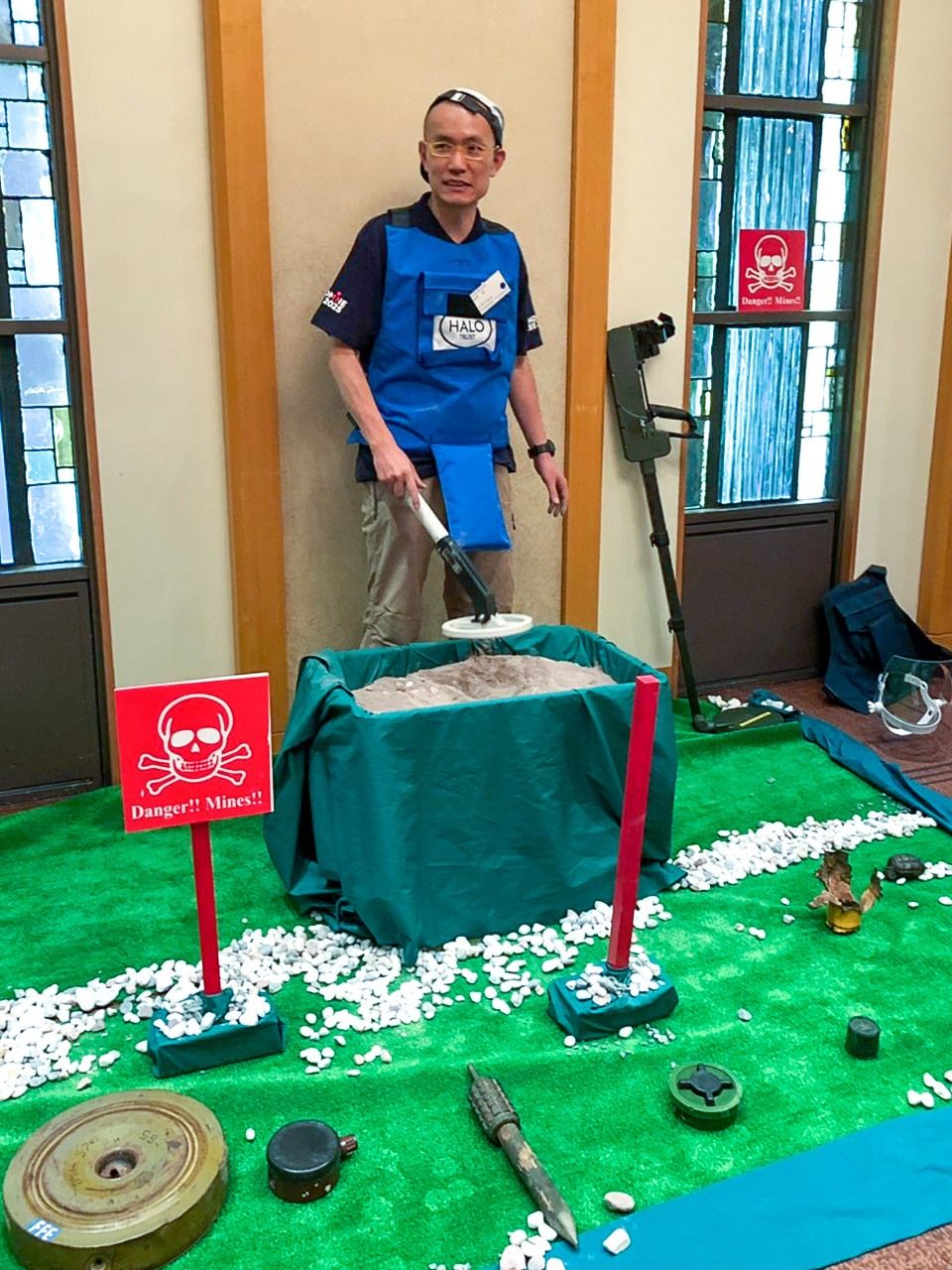
The June 11 event featured a display of antipersonnel mines and a mock demining line.
The importance of eradicating landmines from the world was echoed by HALO Trust CEO James Cowan, who was also in Japan for the event. “Once a country is mine free,” he explains, “it can be normalized. Tourism, industry, and farming can start again. People can get back to leading normal lives.” HALO, one of the world’s oldest and largest humanitarian antimining organizations, and AAR, one of Japan’s oldest international NPOs, are working to get the Japanese government to boost its support of mine action programs.
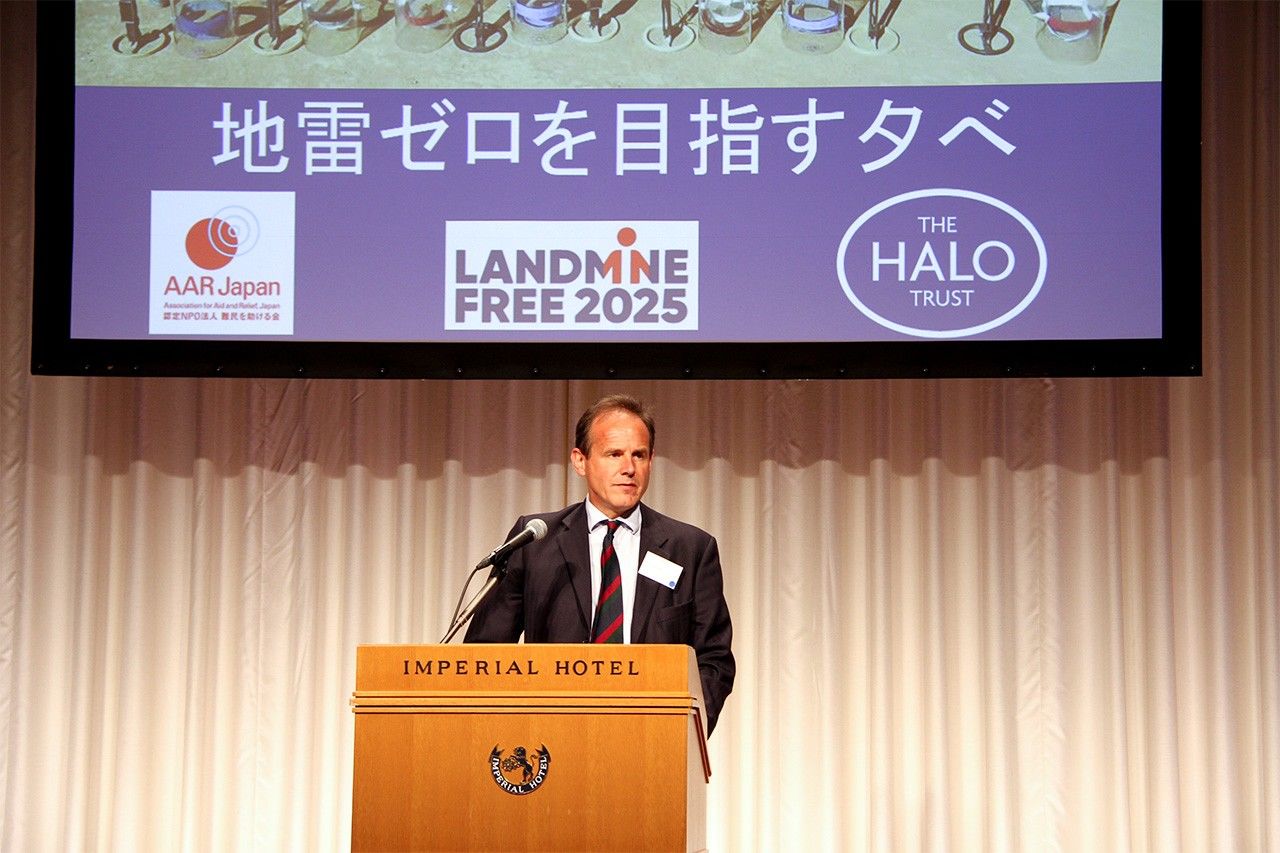
HALO Trust CEO James Cowan speaks about the Landmine Free 2025 campaign.
A Commitment to Demining
In 1997, Japan joined over 130 countries in signing the Ottawa Treaty, also known as the Mine Ban Treaty, that prohibits the use, stockpiling, production, and transfer of antipersonnel landmines. In 2014, it then agreed along with other signatory states to the ambitious goal of making the world mine free by 2025. Although still a major donor, Japan has reduced funding in recent years compared to other leading countries. According to the Landmine and Cluster Munition Monitor, Japan’s contribution to mine action fell from ¥6.2 billion in 2013 to ¥3.6 billion in 2017, a decrease of more than 40%.
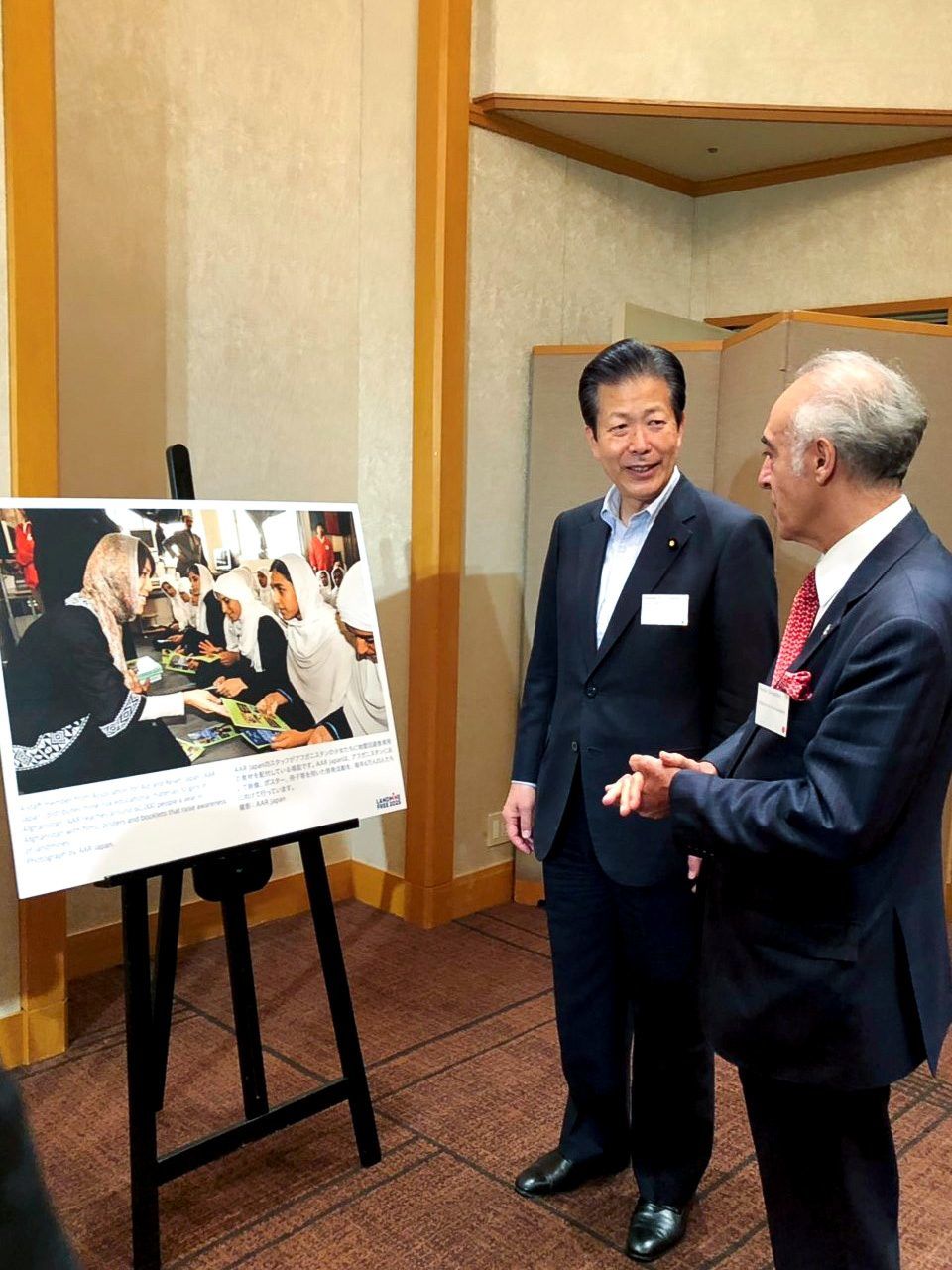
Kōmeitō Chief Representative Yamaguchi Natsuo (left) and Afghan Ambassador to Japan Dr. Bashir Mohabbat, were some of the dignitaries in attendance.
The Tokyo event aimed to call domestic attention to this issue. The organizers expressed satisfaction with how it was received—it attracted a considerable crowd, including politicians from the ruling coalition (Kōmeitō head Yamaguchi Natsuo and the Liberal Democratic Party’s Tsuji Kiyoto, currently parliamentary vice minister for foreign affairs, both addressed the assembly) and opposition party members like Okada Katsuya, allied with the Constitutional Democratic Party of Japan. Attendees viewed photographs documenting demining activities and watched a video message from Britain’s Prince Harry, who dedicated himself to continuing the antimine awareness work that his mother, Princess Diana, was involved in before her death.
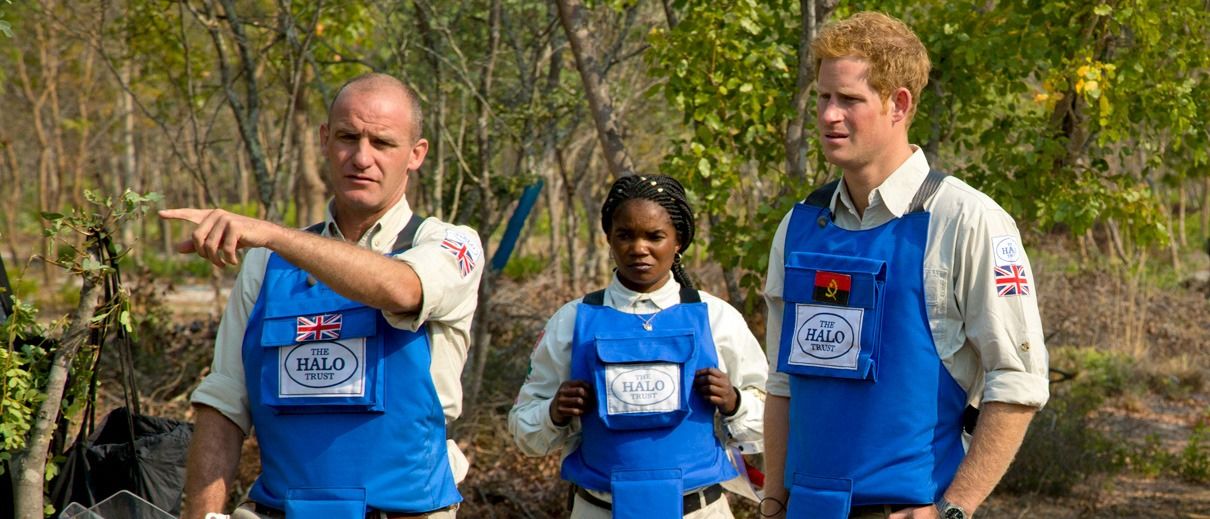
Britain’s Prince Harry (right) visits a minefield in Angola in 2013. Like his mother Princess Diana, he is a vocal advocate of demining. (© HALO Trust)
Japan’s Role to Play
AAR President Osa Yukie stresses the need to rally Japan and other donor nations to fulfill their commitment to the 2025 goal. “Japanese interest in landmines gradually diminished in the years after the Ottawa Treaty was signed,” she explains. ”Today people are focused on the UN’s Sustainable Development Goals, but they need to realize that the landmine issue is closely connected and really symbolizes these targets.”
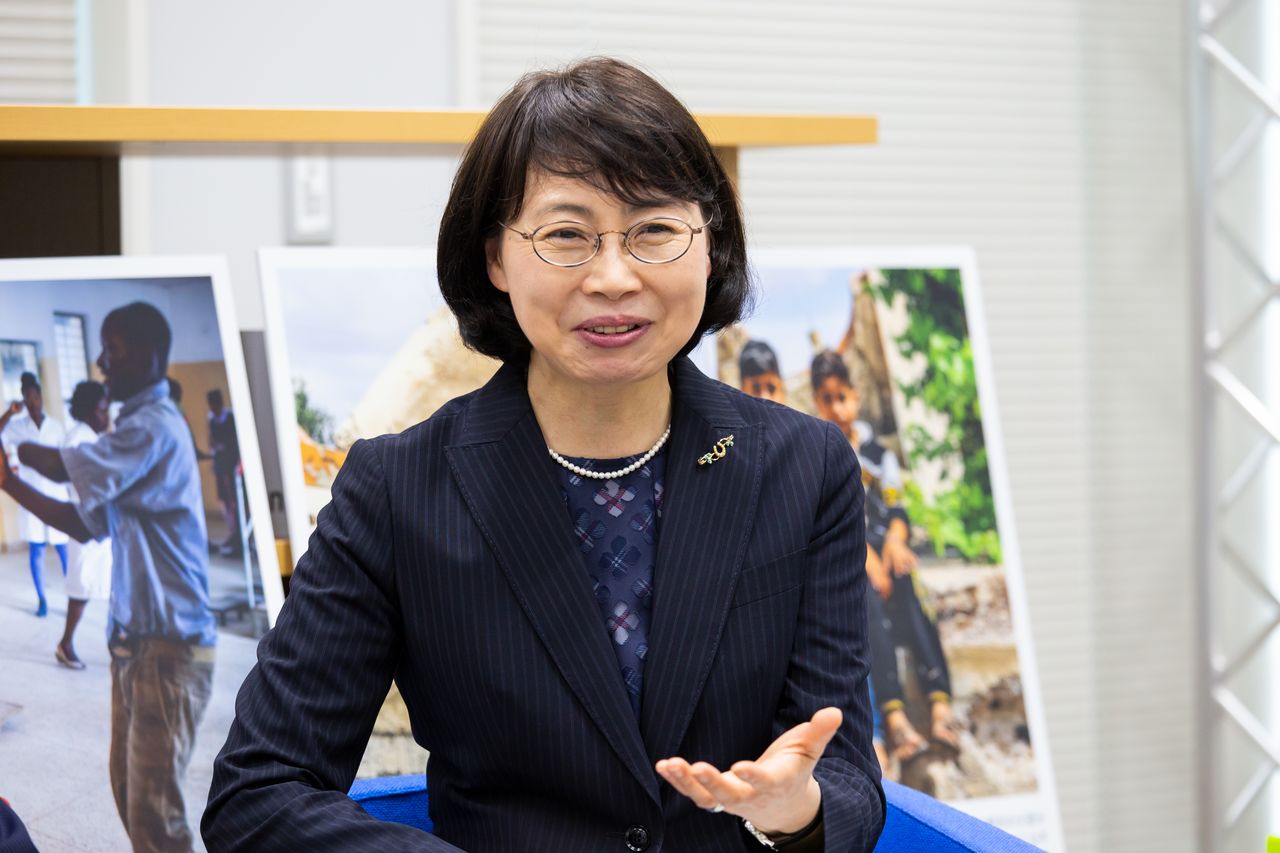
AAR President Osa Yukie talks about her organization’s mine action programs.
Cowan adds that while the country has reduced its financial outlays, it is one of the few states that has consistently funded antimine activities over the years. “Japan has a very distinguished reputation for funding mine action around the world. It’s time again to create that sense of atmosphere and movement that we had in 1997.”
In a message also delivered movingly to the audience at the evening gathering, Duley emphasizes that the landmine issue is about individual lives, stressing that without quick action to remove the weapons, the physical and psychological effects of landmines will remain for “generations to come.” He is especially passionate when it comes to children.
“When I meet children who have been injured by landmines I think of the pain I am in every day, the psychological impact it has, and the opportunities that are denied me because of my injuries. I wake up each day and think that somewhere in the world, another child has been injured like me and faces the same realities. I keep going out and reminding people so that maybe one day I can wake up knowing a child hasn’t been injured by a landmine. It’s a reality we can achieve.”
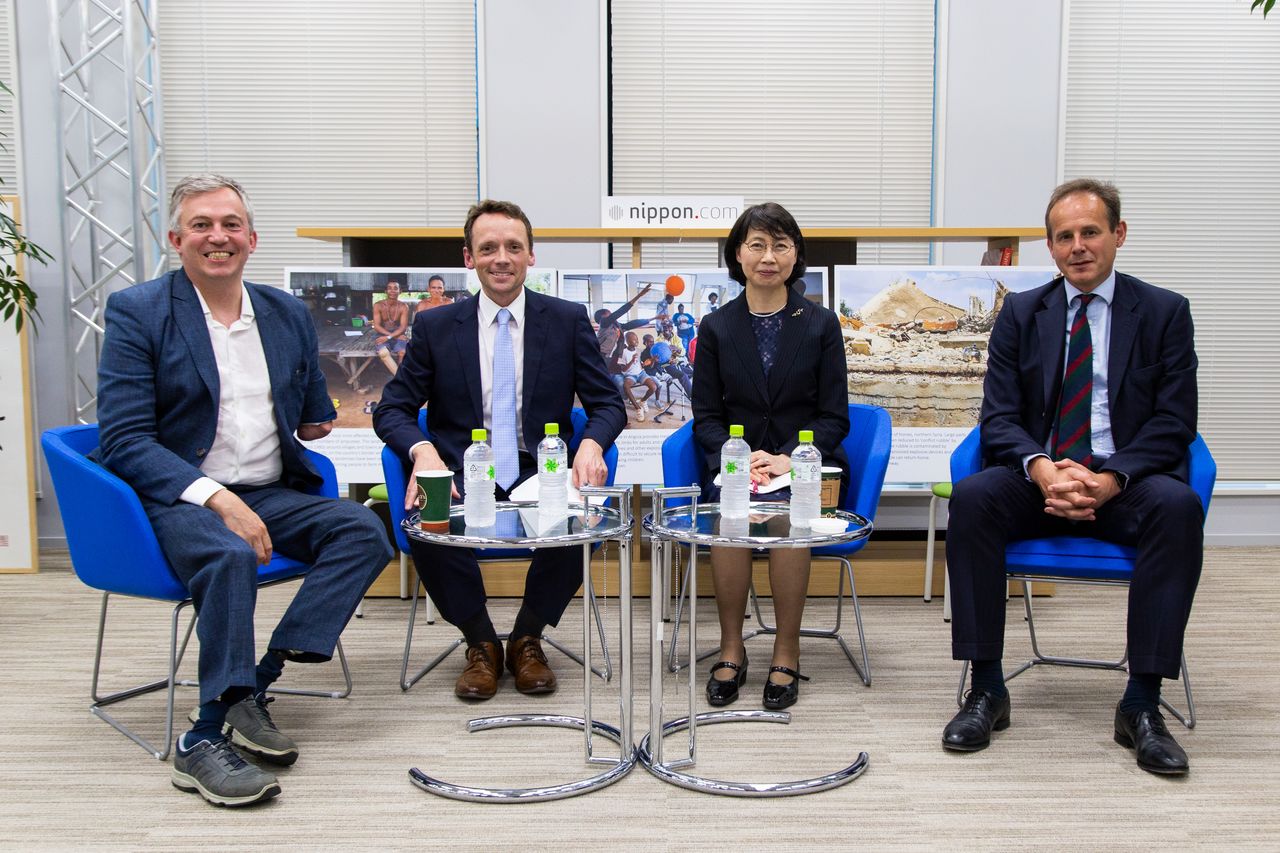
From left to right: Giles Duley, James Singleton of Nippon.com, AAR President Osa Yukie, and HALO Trust CEO James Cowan.
(Originally written in English. Banner photo: A Sri Lankan deminer transports a P4 mine found at the Muhamalai minefield. © Alison Joyce.)